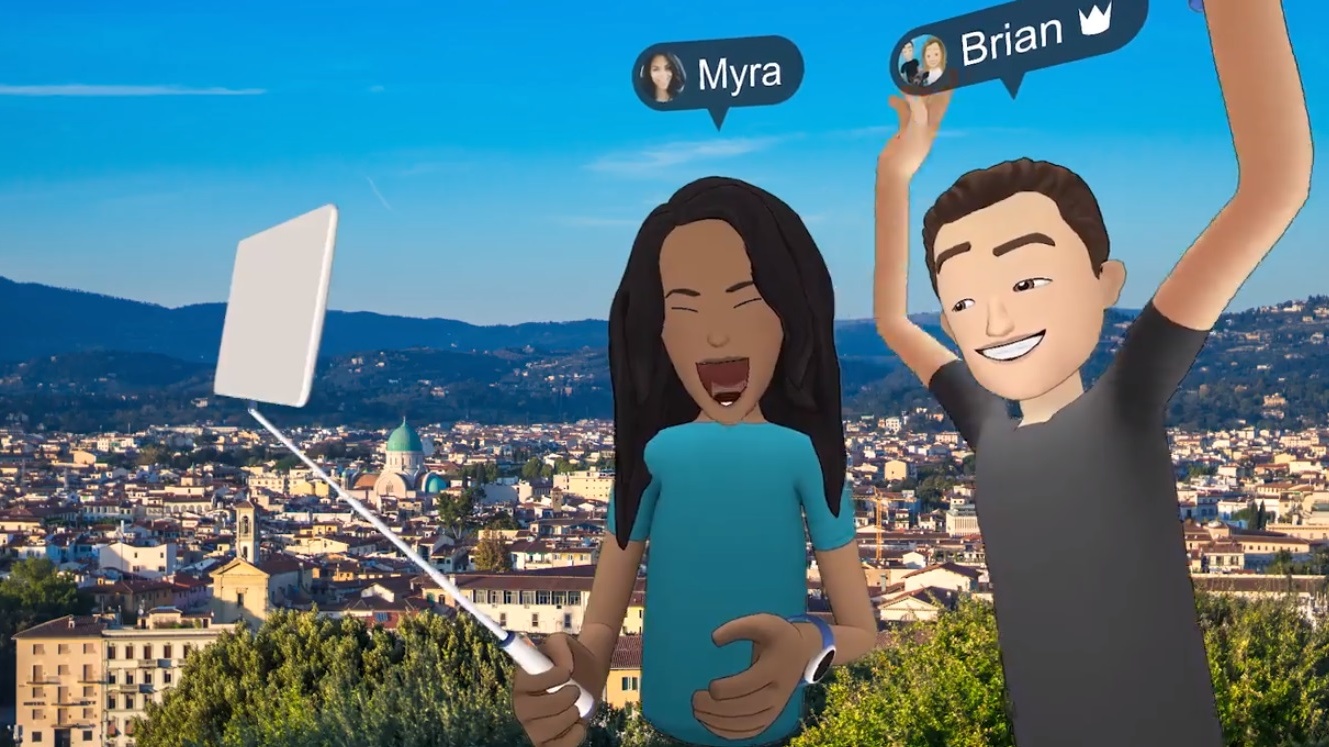You can now hang out in VR using Facebook Spaces for HTC Vive
Twice the likes

Sign up for breaking news, reviews, opinion, top tech deals, and more.
You are now subscribed
Your newsletter sign-up was successful
For better or for worse, Facebook is everywhere these days, but the same can't be said of its Facebook Spaces virtual reality social platform. The service has been an exclusive for Facebook's own Oculus Rift VR headset in its eight-month lifespan so far, but today Facebook announced that it's letting Spaces go cross-platform.
Don't expect to be able to hop onto your PlayStation VR and try it out, however. For now, cross-platform support is limited to the HTC Vive, the Oculus Rift's only true competitor in the high-end VR market.
Neither user base is all that large, but expanding the service to a larger pool should help determine if Spaces is really what the future of social media will look like. Last summer, we were optimistic about the prospects, calling the service a "glimpse of the true social potential of VR."
Virtually the same
The features across headsets remain entirely the same, much as Facebook's regular app works the same regardless of whether you're on iOS or Android.
Users of both the Oculus Rift and the HTC Vive will be able to use Spaces to make their own cartoony avatars, play games, watch 360-degree videos, enjoy photo tours or share the nifty interactive "3D posts" Facebook announced a few months ago.
Beyond that, a larger user base should also accurately reveal if everyday folks are keen on using Spaces as the "digital hangout" Facebook wants it to be, where users interact with each other with virtual avatars, much as they would in real life.
(That's not always a wise idea, as Facebook CEO Mark Zuckerberg himself discovered when he "visited" hurricane-stricken Puerto Rico with the service in October, reports CNBC.)
Sign up for breaking news, reviews, opinion, top tech deals, and more.
Provided you have one of the two systems, all you need to start using the service is a Facebook account. Facebook almost certainly has plans to bring Spaces to other devices, whether to the PSVR or something comparatively humble like the Samsung Gear VR system, but the timelime for these is uncertain.